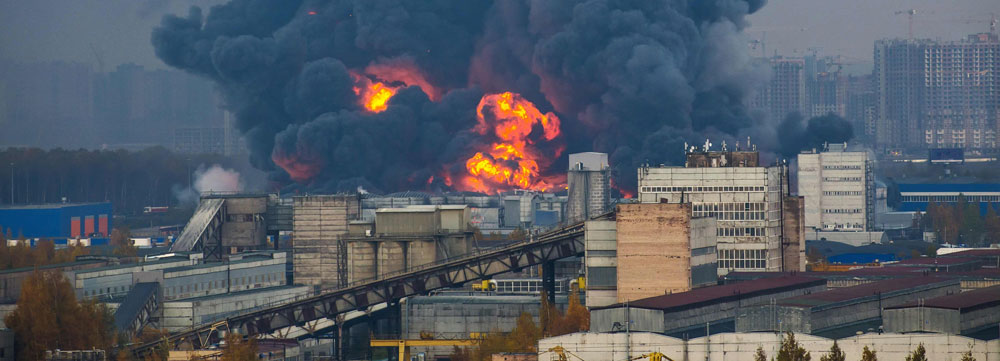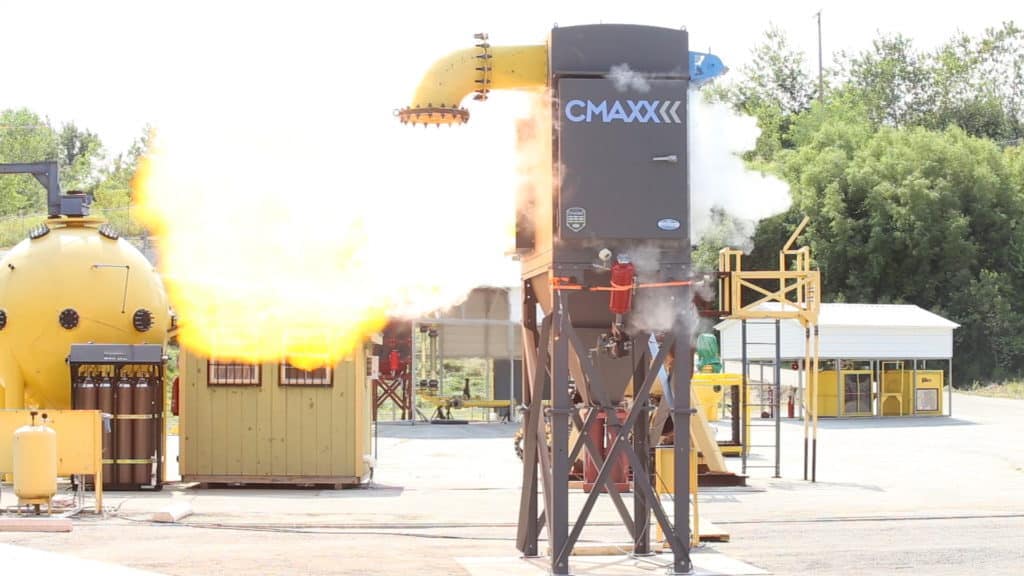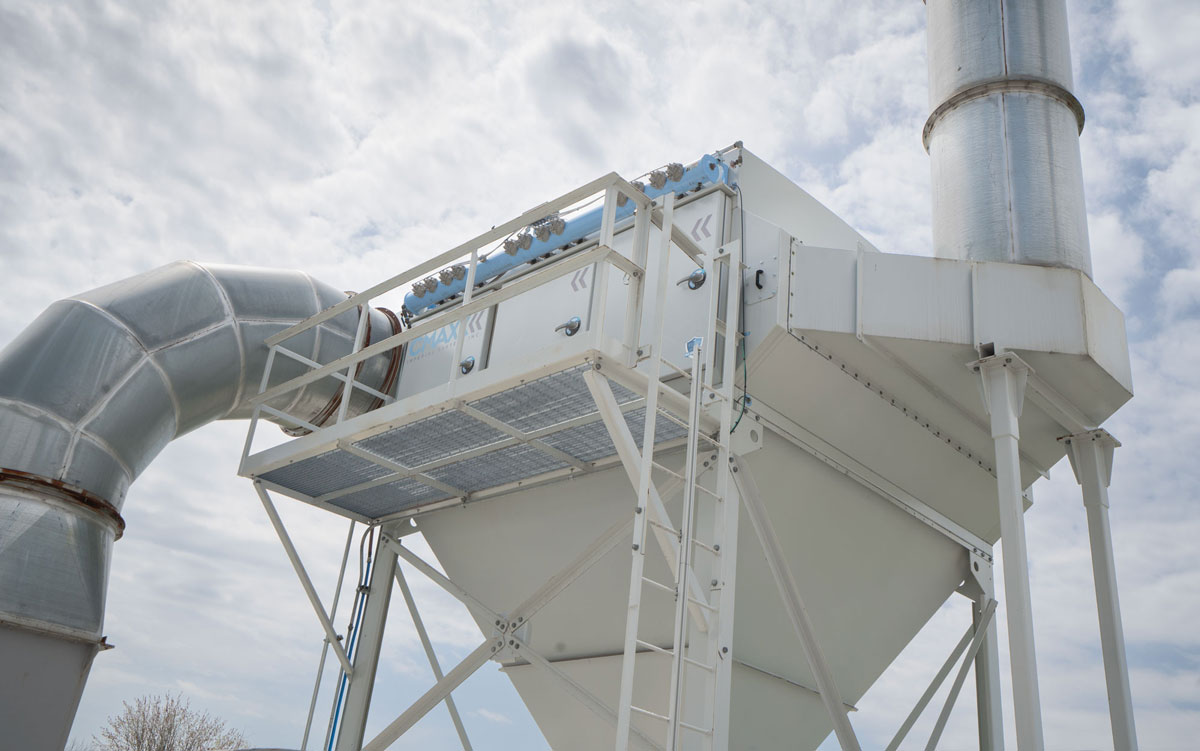
A fire or an explosion can destroy expensive equipment, damage, or even wreck your building. It can certainly cause injury or death to workers. Dust and fume collection systems are often collecting some type of combustible material. So, these systems often require fire or explosion control systems as well as other types of safety systems.
Difference Between Fire and Explosion Control
It’s important to understand how a fire and an explosion are different. Fire is caused is when a substance rapidly consumes oxygen to produce heat and light. An explosion is an event where energy rapidly expands outward from the source, often creating a damaging shock wave. A fire may not cause an explosion, and explosions can happen without fire. For example, logs in a fireplace can slowly burn for a long time, producing flames and heat. Also, a pressurized tank of gas can explode if the material inside expands.
Is Combustible Dust Flammable or Explosive?
The answer is often both, depending on the conditions. If you try to light a block of metal on fire, not enough of the titanium is exposed to the air to start a fire. However, if you grind up that metal or turn it into gas with a welder, those tiny particles are exposed to plenty of air, and if there is an ignition source, they can catch on fire. Some metals, like titanium, burn so hot that once they are ignited, they can actually use water to burn even more, so using water to put them out just makes it worse.
Another example is sugar. Most of us use sugar all the time without realizing that it’s even flammable. However, an airborne cloud of sugar can combine with oxygen so quickly that it causes a violent explosion. Many other materials behave like sugar: once they become airborne, they can cause dangerous explosions because a fire can ignite the material so quickly.
A dust collector can be a perfect environment for a fire or explosion. Lots of dust inside an enclosed space can be very dangerous if it starts to burn, and it can be explosive. So how do you protect your dust collection system from fire or explosions?
Dust Fire and Explosion Control Devices
Spark detectors, spark trap, and abort gates can all act as fire prevention devices. One common choice for fire prevention is a spark detector. A spark detector will sense a spark before it gets into the dust collector, and it can activate other devices.
The spark detector might activate an abort gate. This will drop and deflect any sparks, fire, or smoke away from the facility and divert it safely. A spark trap installed in the ductwork and purposefully creates turbulence in the airflow. This knocks a spark around until it loses so much heat that it can’t start a fire.
These are devices that protect you and your facility from a fire. There are also chemical suppression systems that can be activated by the spark detector and extinguish a spark before it can start a fire. These systems can also put out a fire once it has started to keep it from spreading and prevent damage.
An in-line deflagration arrestor (IDA) is a type of system design. It protects your facility from explosions by stopping a flame front and preventing it from traveling back into the facility. IDA dust collectors include special filters that help extinguish a flame front and prevent it from going any further.
Explosion isolation valves are triggered by pressure to close off and prevent the explosion from traveling any further. A fast-acting slide gate can also be triggered to contain the explosion inside the dust collector. Once an explosion has occurred, there’s one, primary safety concern. That’s preventing it from getting back into the building or from causing damage or injury.
Devices like explosion vent panels or flameless explosion venting do not prevent explosions. But they do vent the explosion safely if one does occur.

Let’s Figure It Out
Sometimes a dust collector upgrade makes the most sense to protect a facility from fire damage. Contact us here at Imperial Systems to help determine your best options.


